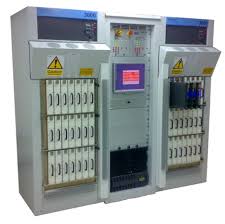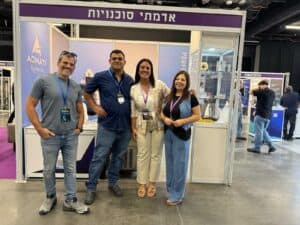News
HTOL Testing: A Key to Reliability in Electronics

High Temperature Operation Life (HTOL) testing is a cornerstone of reliability assessments in the electronics industry. By subjecting devices to elevated temperatures and electrical bias over extended periods, HTOL testing accelerates potential inherent failures, offering a predictive view of long-term performance and dependability. This technique is widely used for device qualification prior to product release and volume manufacturing, as well as for reliability monitoring throughout the product life cycle.
In addition to standard HTOL systems, a shorter-duration variation, Burn-In testing, is employed to screen for infant mortalities and conduct Early Life Failure Rate (ELFR) testing. These tests ensure that devices are capable of withstanding the harsh conditions they may encounter during their operational lifetime.
Advanced HTOL Testing Capabilities
At Reltech, we design and manufacture high-performance HTOL systems, including thermal chambers, HTOL (Burn-In) boards, driver boards, and advanced system software. Our systems are engineered to adhere to the JEDEC standard JESD22-A108 and other industry-specific protocols, ensuring reliability under a variety of conditions.
Our HTOL laboratory provides:
- Multiple thermal chambers and numerous device test positions, enabling simultaneous qualifications at different temperatures and electrical stimuli.
- HTOL board design and manufacturing for customized device testing.
- Systems configured to deliver precise, device-specific bias voltages starting from +0.8V.
- Advanced test vectors supporting up to 20MHz frequency and 8Mb depth.
- Device-level temperature control for low-geometry devices (<65nm) and high-power components.
- Real-time system and DUT monitoring with event logging for enhanced test insights.
These features make Reltech’s HTOL systems a reliable choice for accelerating device qualification processes and meeting stringent reliability monitoring requirements.
Accelerated Reliability Techniques with HTOL Testing
High Temperature Operating Life testing offers a comprehensive method for evaluating device reliability. By exposing components to elevated temperatures and increased electrical bias, HTOL replicates years of operational wear in a condensed timeframe. This accelerated aging process is invaluable for detecting failure points and assessing a device’s Mean Time Between Failures (MTBF).
During HTOL testing, devices are placed in controlled environments where temperatures exceed normal operating ranges. Simultaneously, electrical stresses are intensified, simulating extreme operational conditions. The combination of these factors helps uncover design or manufacturing flaws and provides insights into failure modes and wear-out mechanisms.
HTOL vs Burn-In Testing and Accelerated Life Testing (ALT)
When evaluating reliability, HTOL testing is often complemented by Burn-In testing and Accelerated Life Testing (ALT). While Burn-In testing focuses on early-stage failures, ALT incorporates additional variables such as humidity, vibration, and physical shock to simulate real-world conditions.
- Burn-In testing vs HTOL: Both tests operate devices at high temperatures and voltages, but HTOL is designed for longer durations and provides a deeper analysis of device reliability under thermal and electrical stress.
- Accelerated Life Testing (ALT) vs HTOL: ALT expands the scope of stress factors, making it suitable for devices that may face diverse environmental challenges.
The choice between these tests depends on the specific goals of the reliability assessment. For devices expected to perform in harsh environments, combining HTOL testing with Burn-In and ALT provides a holistic understanding of long-term performance.
Interpreting HTOL Results: Key Insights
Data collected from HTOL testing serves as a valuable resource for engineers. By monitoring parameters such as voltage, current, resistance, and visual indicators, manufacturers can determine a device’s Mean Time Between Failures (MTBF) and identify potential failure modes. This data also sheds light on wear-out mechanisms like solder joint fatigue, thermal damage, and electrical degradation, offering actionable insights to improve device reliability.
More News Articles
